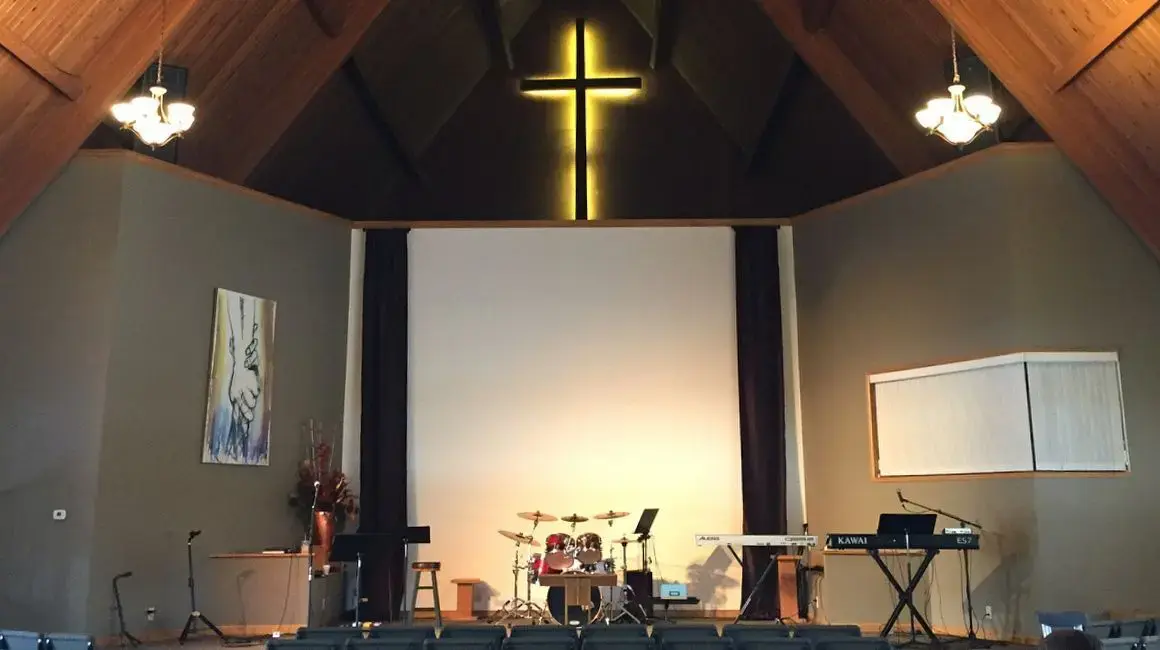Exploring American Religious Traditions as an Exchange Student / Знакомство с американскими религиозными традициями для участников обмена

Exchange Student And Religious Traditions
MEETING AMERICAN RELIGIOUS TRADITIONS IS AN IMPORTANT PART OF CULTURAL EXCHANGE AND ADAPTATION
Religion is a very important part of any culture. Traditions and customs of faith in different countries might have both similarities and differences. Some of them are slight but some of them take a foreigner some time and effort to get used to. Even one religious denomination can be expressed differently depending on the cultural background of a country, a region, or even a particular church.
As an Exchange Student, you should be ready to meet and adjust to the new religious traditions, and be respectful of all the customs your Host Family follows regarding church and faith. Assuming that you already know what an American church is like is a completely wrong approach. First, there are about 200 denominations of Christianity only, which add up with non-denominational churches and the ones of different religions making the image of “American church” very diverse. Second, there is no way to define a cultural phenomenon, like “American church” or “religion in the US”, without seeing at least some of its expressions in person.
How is American church different?
In the US, church does not usually refer to a building, or a special set of symbols. Churches look different and happen to be located in the most unpredictable places like offices or even apartment buildings. The term “church” usually refers to a community of people united by a common understanding of faith.
There are churches that have more conservative customs and appearance. They are much alike Catholic cathedrals in Europe. Also there are churches that look and function completely different. Sunday services are accompanied by cheerful music, singing and even dancing, pastors preach telling the experience of real people along with biblical stories. Those churches might shock you at a first glance because they do not look like anything related to religion. Church services, especially the ones on Christmas or Easter, with the most people attending, are cheerful and filled with smiles. Also, the music is great: churches put a lot of effort into creating good acoustics and playing music very well as it is a part of worship. With all the singing, dancing and positivity, the service is worth visiting even for those who have a different religious affiliation than their Host Family.
Socializing
Church is not only the place for worship, it is also a community of people who share similar worldview and have good time together. They talk before and after the service, smile to each other, share latest news. They care about each other. For many people their church becomes a support system, a safe place where they can be themselves and find people who understand and accept them.
In a lot of churches, there are youth groups that are created for the young people to gather, socialize, have discussions, and find friends. Attending such a group at a church your Host Family goes to is a great opportunity to communicate with your peers and make new connections.
Another important aspect of attending a church as an Exchange Student is its cultural value. As mentioned before, religion is a big part of a culture, it reflects a lot of things about the society in general and about the particular community. It means that getting familiar with the foreign religious customs is enriching and important for you as both an individual and an Exchange Student. Also, comparing different religious traditions can be a great experience, or even a topic for a piece of writing for World History or a similar class.
It is probably going to be important for your Host Parents to introduce you to their church community and show you what does religion look like in their life. As a guest in a family and a country, you should not only be polite but deeply respectful of everything your Host Family shares with you. Going to church with your Host Family, showing interest in that sphere of their life can make you closer with them and ease the process of mutual adjustment.
Difficulties & Problem Solving
If you face any problems or have a misunderstanding with your Host Family regarding church or religion, do not be shy to talk to them about it. Tell them why you feel uncomfortable about certain things and try to figure everything out in a conversation. It is really important that you do not silently struggle but share what is going wrong and how you feel about it.
If there is no way for you to figure things out within the family, reach out to you Local Coordinator. Those people are trained to solve problems like that, and they will help you in any situation. Always remember that there are people to help you and support you while you are going through the adjustment process which is not at all easy.

Студент по обмену и религиозные традиции
ЗНАКОМСТВО С РЕЛИГИОЗНЫМИ ТРАДИЦИЯМИ, КАК ВАЖНЫЙ ЭТАП КУЛЬТУРНОЙ АДАПТАЦИИ
Что Такое "Американская Церковь"?
Религия - очень важная составляющая культуры. Традиции разных религиозных течений в чем-то похожи, а в чем-то – заметно отличаются друг от друга. Даже одна и та же религия в разных странах может проявлять себя совершенно по-разному.
Неправильно думать, что ты знаешь, что из себя представляет “американская церковь”, исходя из своего опыта на родине.
В Америке существует более 200 направлений одного только христианства, не говоря уже о “non-denominational” церквях, которые не относят себя к какому бы то ни было течению. То есть, на то, какой видишь “американскую церковь” ты, приходится как минимум 199 других вариантов. Какими бы разносторонними ни были твои представления, ты ничего не можешь знать наверняка, не познакомившись с культурой лично.
Американская церковь очень сильно отличается от привычного русскоговорящему человеку образа.
- Во-первых, в США церковь – это часто не про здание или атрибутику, но про объединение людей. Церкви выглядят и функционируют самыми разными способами, и в большинстве случаев совсем не похожи на традиционные православные (никаких куполов и расписанных фресками потолков). Часто они могут располагаться в офисных зданиях или даже частных домах.
- Во-вторых, с точки зрения консерватизма, американские церкви далеки от привычных православных. Вместо принятых в церквях и храмах в России тишины и приглушенного света, в Америке можно часто встретить на Воскресной службе оркестр и хор, послушать библейские истории под джазовые мелодии. Конечно, там существуют и консервативные церкви, с более сдержанными традициями, но песни и музыка - далеко не редкость. Если еще учесть, что здание церкви зачастую «никак себя не выдает», то службы, особенно масштабные – на 1000 и более прихожан – иногда и правда можно принять за музыкальный концерт.
- В-третьих, церковь здесь – это не только про богослужение. Люди общаются, заряжаются друг от друга улыбками, до и после службы мило болтают в коридорах, обмениваются новостями. Кроме того, и сама служба – это обычно не просто молитва по тексту писания, это, скорее, лекция по философии или психологии, основанная на каком-либо библейском мотиве. Речь пастора может быть очень трогательной, мотивирующей или познавательной. Даже если ты придерживаешься других религиозных убеждений, тебе будет интересно послушать, а после, например, поговорить об этом с хост-семьей. Различия в религиозных традициях вообще могут быть отличной темой для обсуждения с хост-семьей или даже школьного доклада по истории или философии.
Религия В Хост-Семье
В том числе из-за социального аспекта посещения церкви твоим хост-родителям наверняка будет важно познакомить тебя с этой сферой их жизни. Нужно проявлять не просто вежливость, но уважение и интерес к традициям твоей хост-семьи. Так как ты гость в их семье и культуре, посещение церкви и знакомство с религиозными традициями – значимый этап твоей адаптации. К тому же, посещение воскресной службы – это зачастую момент настоящего семейного единения.
Если же у тебя возникают трудности, связанные с посещением церкви, стоит обсудить это с хост-родителями. Расскажи им, в чем ты видишь проблему, и попытайтесь вместе найти компромисс. Важно не обижаться и не терпеть, а найти слова и время для разговора. Если вы не сможете найти решение твоей проблемы, обратись к своему координатору или другим представителям программы. Не спеши жаловаться родной семьей, ведь они скорее всего не смогут никак тебе помочь, находясь далеко и не зная ситуации. Старайся воспринимать это как опыт – часть культурного погружения – и помни, что ключ к решению любой проблемы – взвешенный диалог.

